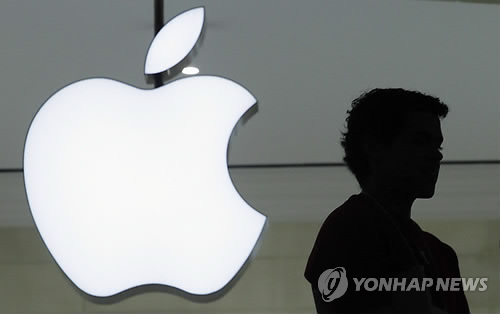China’s aggressive investment in panels may not have a significant impact on South Korea’s leading display manufacturers such as Samsung Display and LG Display, amid speculations that Apple may use LCD panels from China, according to local analysts.
The latest report by IHS Markit said Apple is considering diversifying its supply chain to Chinese makers for its MacBook Air lines as Samsung and LG are shifting their focus into OLED from LCD. If so, this will be the first time Apple will use LCD panels from China.
China’s largest panel maker BOE may be the strongest candidate, with its notebook business expected to grow to more than 36 million units in 2017.
Local analysts, however, said China’s growth in panels may have little impact on Samsung and LG because of a big technology gap among the firms.
“Even If Apple uses LCD panels from Chinese firms for its MacBook Air, the supply may not come soon because Chinese firms have not yet secured oxide thin-film transistor technologies used for most of Apple’s devices,” said Chung Won-seok, an analyst at HI Investment & Securities.
“The supply, if confirmed, may come as early as 2018,” Chung added.
Further, the LCD partnership with Apple does not guarantee that the iPhone maker will use OLED panels from the Chinese firms in the future, analysts said. Apple reportedly plans to shift their smartphone panels from LCD to OLED next year.
“Once Chinese firms are partnered with Apple and if they successfully cater to Apple’s needs -- which is very demanding -- their dominance will become larger,” said Lee Woo-geun, an analyst from LG Economic Research Institute told The Korea Herald.
“Still, OLED is a different issue. Chinese firms still need to have references -- like they did in LCD -- even after they mass produce OLEDs,” Lee added.
Currently, Samsung Display accounts for more than 90 percent of small OLED and LG Display accounts for more than 90 percent of large OLED in the global market. BOE began production for OLED with the aim of mass production in 2018.
In the long term, however, Chinese and Taiwanese panel makers may become threats to Korean firms, market watchers said.
“BOE and Hon Hai Group -- which acquired Sharp and may possibly buy JDI too -- may pose threats to Samsung and LG, possibly in 2020 with their aggressive investment in OLED panels,” said Kim Young-woo, an analyst at SK Securities.
By Shin Ji-hye (shinjh@heraldcorp.com)
The latest report by IHS Markit said Apple is considering diversifying its supply chain to Chinese makers for its MacBook Air lines as Samsung and LG are shifting their focus into OLED from LCD. If so, this will be the first time Apple will use LCD panels from China.
 |
| (Yonhap) |
China’s largest panel maker BOE may be the strongest candidate, with its notebook business expected to grow to more than 36 million units in 2017.
Local analysts, however, said China’s growth in panels may have little impact on Samsung and LG because of a big technology gap among the firms.
“Even If Apple uses LCD panels from Chinese firms for its MacBook Air, the supply may not come soon because Chinese firms have not yet secured oxide thin-film transistor technologies used for most of Apple’s devices,” said Chung Won-seok, an analyst at HI Investment & Securities.
“The supply, if confirmed, may come as early as 2018,” Chung added.
Further, the LCD partnership with Apple does not guarantee that the iPhone maker will use OLED panels from the Chinese firms in the future, analysts said. Apple reportedly plans to shift their smartphone panels from LCD to OLED next year.
“Once Chinese firms are partnered with Apple and if they successfully cater to Apple’s needs -- which is very demanding -- their dominance will become larger,” said Lee Woo-geun, an analyst from LG Economic Research Institute told The Korea Herald.
“Still, OLED is a different issue. Chinese firms still need to have references -- like they did in LCD -- even after they mass produce OLEDs,” Lee added.
Currently, Samsung Display accounts for more than 90 percent of small OLED and LG Display accounts for more than 90 percent of large OLED in the global market. BOE began production for OLED with the aim of mass production in 2018.
In the long term, however, Chinese and Taiwanese panel makers may become threats to Korean firms, market watchers said.
“BOE and Hon Hai Group -- which acquired Sharp and may possibly buy JDI too -- may pose threats to Samsung and LG, possibly in 2020 with their aggressive investment in OLED panels,” said Kim Young-woo, an analyst at SK Securities.
By Shin Ji-hye (shinjh@heraldcorp.com)





No comments:
Post a Comment